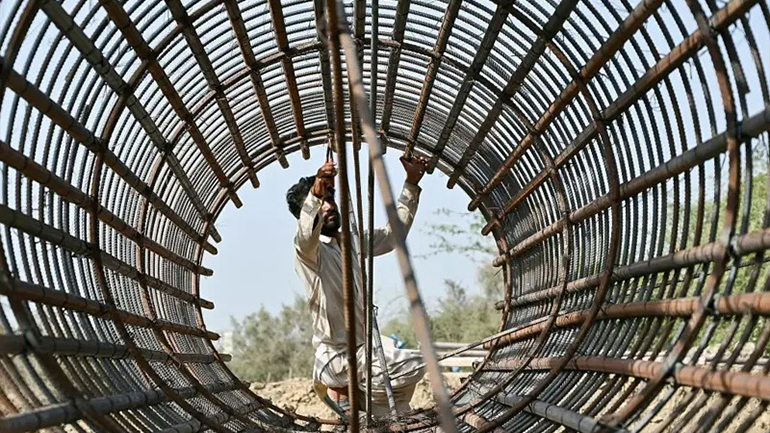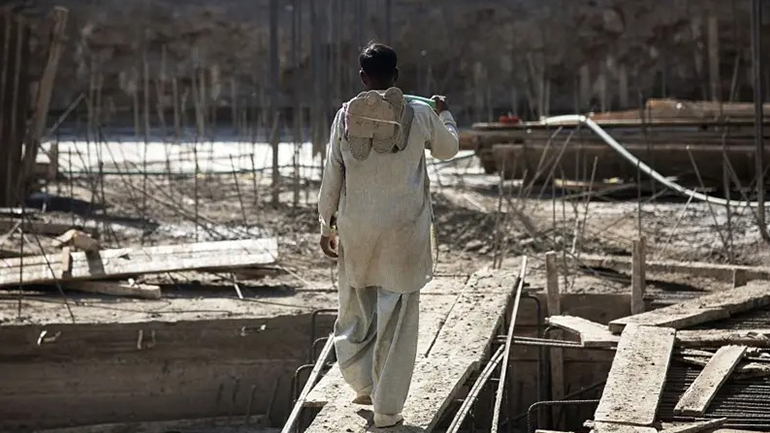

The federal government of Pakistan has proposed tax exemptions and incentives in the new fiscal year's budget to boost the construction sector and promote the building of low-cost housing in the country. In his budget speech, the Federal Finance Minister stated that the construction sector is a vital part of Pakistan’s economy, as large-scale industrial production in the country heavily depends on it. He added that heavy taxation on this sector has had adverse effects. Announcing a reduction in various taxes imposed on the construction sector, the Finance Minister also introduced incentives for the construction of small homes to address the nationwide housing shortage. He expressed hope that these measures will lead to growth in the construction sector and that it will play a significant role in economic development. However, the key question is: Will these budgetary steps by the government truly lead to growth in the construction sector and make it possible for middle-class families to afford affordable housing? To explore this, we consulted with construction experts and industry stakeholders to assess the feasibility of providing affordable homes to the general public in Pakistan.

In the new fiscal year budget, the Finance Minister stated in his speech that "due to heavy taxation, economic activity in the construction sector has been negatively affected. Therefore, it is proposed to reduce the rate of withholding tax on property purchases from 4% to 2.5%, from 3.5% to 2%, and from 3% to 1.5%." He further said that "to further reduce the burden on the construction sector, it is also proposed to abolish the Federal Excise Duty (FED) of up to 7%, which was imposed last year on the transfer of commercial properties, plots, and houses." Additionally, he announced that to encourage home loans and support the construction of low-cost housing, a tax credit will be introduced for houses up to 10 marla and flats up to 2,000 square feet. "The government will introduce a comprehensive system to promote the trend of acquiring loans for home construction and purchase." The Finance Minister also proposed that the stamp duty on property purchases in Islamabad be reduced from 4% to 1%.

In the new federal budget, regarding the reduction and exemptions in taxes on the construction sector, former Chairman of the Association of Builders and Developers (ABAD), Arif Jeeva, said that the Federal Excise Duty (FED) imposed last year on the buying and selling of houses and properties meant that a property worth ten million rupees would cost 7% more due to tax. Now, this 7% additional cost will no longer apply. He added that the reduction in withholding tax will also support the sector, which has been facing challenges for the past few years. “The decrease and elimination of taxes will certainly boost buying and selling in the real estate sector,” he said. However, he noted that the impact of these measures will not be immediate and may take time to be felt. Real estate expert Ahsan Malik commented on the development, saying, “The Federal Excise Duty was wrongly imposed and its removal had already been decided about three months ago because it had been challenged in court.” He pointed out that while the budget is being promoted as one offering incentives for the construction sector, the most concerning aspect is the requirement for tax filers to disclose the source of funds for purchasing property. The Federal Board of Revenue (FBR) will have to approve it before the purchase can proceed. Ahsan Malik warned, “This will not only create opportunities for harassment but also open a new door for money-making by authorities. Already, overseas Pakistanis are required to get approvals from tax commissioners for property transactions and are facing difficulties. Now, the same burden will fall on local citizens, creating further complications in real estate transactions.”

In the budget, along with announcing incentives for the construction sector, the government has introduced a tax credit for houses up to 10 marla and flats up to 2,000 square feet, aiming to promote low-cost housing and encourage people to take home loans. How much will these budgetary measures help the middle class in Pakistan to build or purchase their own homes? Speaking on this, builder and developer Hanif Gohar said, “To buy a house, the first requirement is an income level that allows a middle-class person to save after meeting basic needs to purchase or build a home.” He explained that even the cost of the smallest home in Pakistan is not less than PKR 5 million. He added, “The reduction in taxes and abolition of excise duty might save a few hundred thousand rupees on a home worth PKR 10 million, but does the middle class have that PKR 10 million in the first place to even make use of that savings?” He emphasized, “People can only buy homes when they have the financial capacity, and currently, many are struggling financially.” He further stated, “Whether it's tax relief or a tax credit for building a home through a loan, all of this is tied to the purchasing power of the middle class.” He concluded by saying, “Purchasing power is the biggest issue because rising construction costs have increased property prices, pushing them out of reach for the average person.”
Powered by Froala Editor